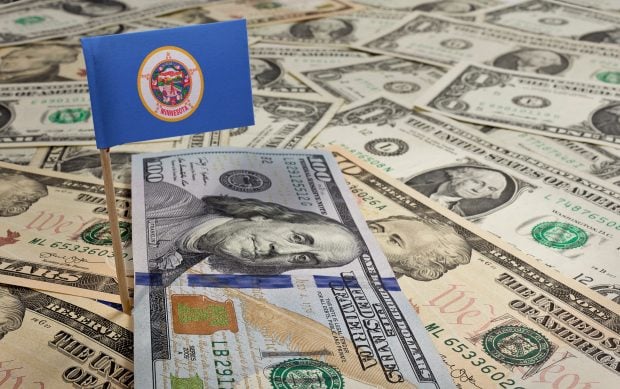In the turbulent auto industry over the past year, credit unions have been benefited from the fallout by capturing an increasing share of the auto lending market and increases in loan volume. But, as in life, with growth comes responsibility."It's exciting to see growth because credit unions have filled a void, but, at the same time, the right paperwork flow and mitigation needs to be in place to manage that growth. Sometimes with a lot of growth, things slip through because you're not paying as much attention," said Lee Domingue, CEO of indirect lending at Wolters Kluwer Financial Services.Having the proper technology and documentation in place right now is important, Domingue added. With increasing volume, having employees manually look at risk increases the room for error, Domingue said. Credit unions should make sure that they are linked to the right fraud identification databases, and if they use a third-party vendor, they should make sure the vendor stands behind its process if there is an error.Spotting fraud and errors before loans are originated is helpful for both the credit union and the dealership. If fraud is determined after the loan is originated, the credit union needs to go back to the dealership to buy the loan back."That puts the relationship at risk, and right now dealers may not be in business anymore or be able to make that restitution."Incentive programs, like Invest in America and Cash for Clunkers, have helped boost growth for credit unions and the auto industry in general, but they bring to light an issue that credit unions need to be wary of.These incentives create what Larry Highbloom, president of VINtek, an electronic lien and title solution provider, called a party atmosphere. What credit unions need to look out for now, Highbloom said, is the hangover."Credit unions need to focus as much as possible on title perfection and getting liens from the dealerships. The Cash for Clunkers hangover is going to hit dealerships like the morning after."Highbloom explained that depleted inventory from the rush of sales from Cash for Clunkers, the slow rate of the issuing of checks from the government and the lull in sales that may take place in September could create cash flow problems at some dealerships.For credit unions, this means that dealers may be slow in submitting paperwork to the DMV because they want to delay having to pay sales tax. The paperwork process at the DMV is also where the lien gets recorded for the credit union lender, Highbloom said.To combat potential problems and risk, Highbloom said credit unions should get very strict with requirements from dealerships. Specifically, credit unions should tighten up lien exception requirements. For example, if a credit union normally has a 60-day time period that it requires the lien from the dealer, it should reduce that to 10 to 15 days to make sure that problems with getting liens don't accumulate.Jeff Hays, senior manager of collections at Partners Federal Credit Union, said in Florida title fees were doubled so that has been an area that the credit union has been monitoring.Partners recently introduced an auto refinance program that has attracted 791 members. To stay on top of risk, Hays said that the credit union does a monthly report and tracks the refinanced loans, and so far the delinquency and charge-off rate for the refinanced loans has been the same as the credit unions total portfolio.At Credit Union One, Executive Vice President Stephen Grech said that the credit union hasn't had any lien issues with dealerships yet. The Ferndale, Mich-based credit union has a large indirect auto loan program as well as a direct lending program. Latest numbers from the credit union show that as of the end of August it had $41 million in indirect loans and $40 million in direct loans.Grech said that lien issues are why it is so critical, from the indirect lending perspective, to be engaged with a dealership and have a good relationship."It is so important to create an indirect program in such a way that it is a value for the dealership to be part of that program. You want to have to say 'No, we have enough dealers' so that dealers comply with your requirements because they want to stay on that list," Grech said.Michael Poulos, president/CEO of Michigan First CU agreed with Grech's statement and said that dealers on the credit union's preferred dealership would not want to do anything that would damage that relationship.All things that were important before have been magnified in the current environment, Grech added. At Credit Union One, Grech said that employees carefully scrutinize all paperwork."There's no playbook for this, it's uncharted territory. You have to be pretty nimble, and you can't be afraid to change direction on a dime."Looking ahead, Domingue said that he predicts the auto industry will see improvement in 2010, but things will be fairly flat for the rest of 2009.Grech said that Credit Union One is already starting to see more competition in the marketplace.–[email protected]
Complete your profile to continue reading and get FREE access to CUTimes.com, part of your ALM digital membership.
Your access to unlimited CUTimes.com content isn’t changing.
Once you are an ALM digital member, you’ll receive:
- Critical CUTimes.com information including comprehensive product and service provider listings via the Marketplace Directory, CU Careers, resources from industry leaders, webcasts, and breaking news, analysis and more with our informative Newsletters.
- Exclusive discounts on ALM and CU Times events.
- Access to other award-winning ALM websites including Law.com and GlobeSt.com.
Already have an account? Sign In
© 2024 ALM Global, LLC, All Rights Reserved. Request academic re-use from www.copyright.com. All other uses, submit a request to [email protected]. For more information visit Asset & Logo Licensing.









